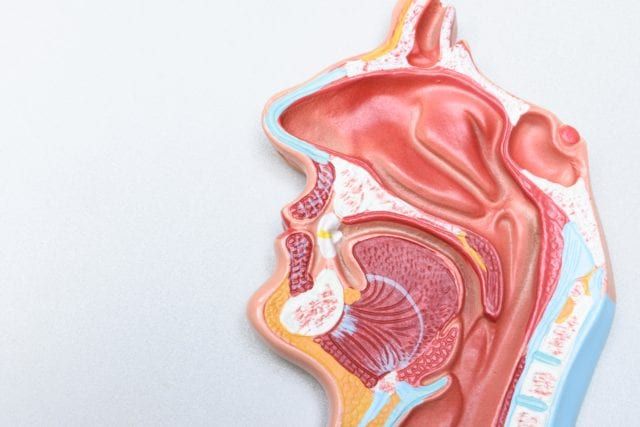Did you know that you may experience a runny or stuffy nose after having dental implants placed? While this may seem like an odd thing to experience after having oral surgery, it is quite common and nothing to be concerned about. Nevertheless, many people are still curious about why their nose is affected by dental implant surgery, especially since the surgery is performed entirely in the mouth.
In fact, there are a few different reasons why your nose is affected by dental implant surgery, such as:
Anatomy
First and foremost, your mouth and nose are extremely close to one another. When you consider the fact that upper dental implants are placed in the bone that sits between your nasal and oral cavities, it makes sense that your nose would be partially affected. Additionally, your front central incisors sit just below the base of your nose, so any work in this area can also cause nose irritation.

Shared Nerves
There are several small nerves and nerve endings that flow through the mouth and nose. Some stretch from the nose to the mouth and others stretch from the mouth to the nose. There is also one significant nerve called the nasopalatine nerve that travels between the mouth and the nose, ending between your two central incisors. In some cases, these nerves may make it feel like your nose is runnier or stuffier than it actually is.
Sinus Irritation
When dental implants are placed towards the back of the mouth in the upper jaw, a sinus lift may also need to be performed, especially in cases where there is not adequate bone mass. A sinus lift is a type of bone graft that builds up the jawbone between the sinus cavity and the mouth. Patients who have undergone a sinus lift in coordination with dental implant placement often experience some type of congestion.
Supplemental Oxygen
Since dental implant placement is considered oral surgery, it is performed using dental sedation. When patients are under sedation, supplemental oxygen is supplied through the nose. Unfortunately, this can dry out the nasal passageways and cause minor irritation that results in a runny or stuffy nose after surgery.
The Do’s and Don’ts of a Runny Nose After Implant Surgery
To alleviate a runny or stuffy nose after dental implant surgery, there are a few things that you will want to do and others that you absolutely should not do.
Do:
- Gently blot your nose with a tissue to help a runny nose
- Sneeze with your mouth open to avoid excess sinus pressure
- Use a nasal decongestant (ask your implant dentist for a recommendation)
- Soak a Q-Tip in hydrogen peroxide and place in just inside the base of your nose to help dissolve any hardened nasal debris
Don’t:
- Blow your nose–this causes excess sinus pressure which can negatively affect your sinuses and make things worse
- Drink from a straw
- Any of the following activities that increase sinus pressure: blowing balloons, playing musical instruments with your mouth, swimming, or scuba diving

